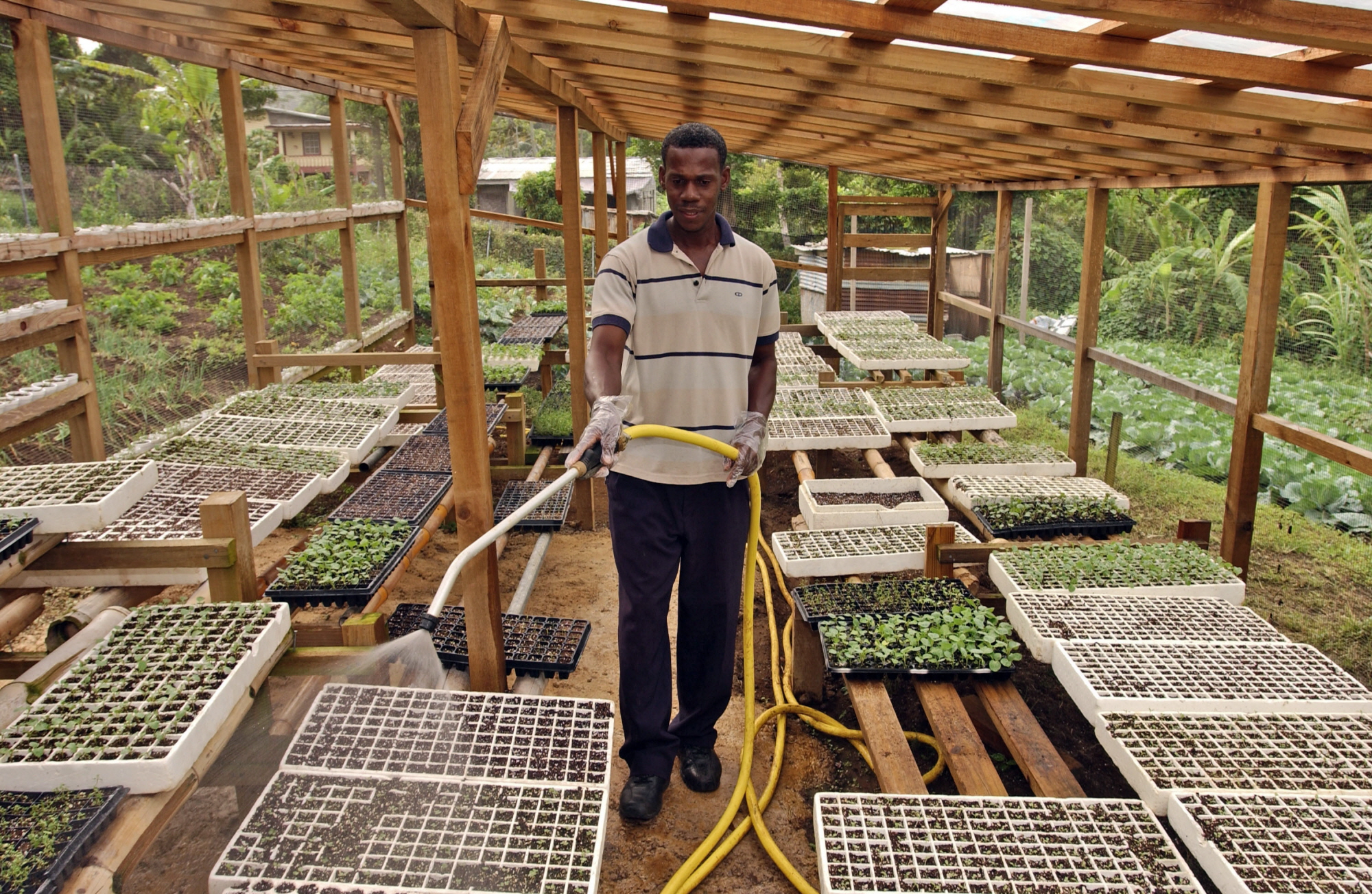Food Systems Assessment On Track To Deliver Key Data At Un Summit
 Seedling nursery in Grenada
Seedling nursery in GrenadaAs world leaders gather in New York for the UN Food Systems Summit, convened under the General Assembly, to discuss solutions to improve the world's food systems, the Food and Agriculture Organization of the United Nations (FAO) is releasing key results from a major food systems assessment programme, carried out in over 50 countries under the leadership of governments and in close collaboration with the European Union (EU) and the French Agricultural Research Centre for Development (CIRAD). This effort will be further deepened and expanded beyond the Summit.
"This is a major exercise mobilizing a whole range of food system actors in many countries, with so much information coming out in a short space of time. It will provide key information to the Food Systems Summit and in the follow-up." said James Tefft, Senior Economist, FAO Investment Centre and the coordinator of the Food Systems Assessment (FSA) initiative. "The assessments will play a critical role in guiding future action towards transforming food systems".
The FSA is based on a methodology that combines quantitative evidence, qualitative appraisal and stakeholder consultations. It involves the active participation of actors from the public and private sectors, producer organizations, civil society and academia to rethink food systems. The assessment will help generate evidence and knowledge about the sustainability of food systems, with a focus on four core goals: food security, nutrition and health; inclusive economic growth; territorial development and equity; and the environment.
Results from the country FSA will contribute to shaping new policies and more quality in private and public investments needed to make food systems more sustainable and inclusive. The ultimate aim is to ensure the availability and affordability of safe, nutritious and healthy food for all and a more equitable distribution of wealth and resources, while also preserving the environment.
Latest results: Senegal, Zambia and the Caribbean
Following the initial results from Bhutan, Burkina Faso, Madagascar and Nepal published during the Food Systems Pre-Summit in July, more countries have completed their assessments and released a few key highlights, including:
Senegal
The food system is a driving force behind economic growth, accounting for 37 percent of gross domestic product and including dynamic exports in fisheries, groundnuts, horticulture and processed food. However, the country is affected by climate change and environmental degradation. Rural migration, especially among youth, is affecting rural demographics and the workforce. A key question is how to feed the Senegalese population while reducing the country’s reliance on imports, reversing the depletion of natural resources and providing attractive jobs for young people.
Zambia
The country potentially benefits from a wealth of natural resources including land, forest, water and diverse eco-systems; however, unsustainable agricultural practices are quickly depleting the resources. Heavy reliance on rainfed agriculture and the predominance of maize production contribute to making Zambia’s food system more vulnerable to climate shocks. A key question is how to implement climate-smart measures like agroforestry and conservation agriculture to make the food system more resilient and ensure food security and better nutrition for vulnerable rural people.
Caribbean island states
The predominance of commercial monocrops in the Caribbean Island states, in particular Cavendish bananas, has depleted soils and increased imports of low quality food. Most island states suffer from the double burden of poor nutrition and obesity, leading to a rise in non-communicable diseases, particularly among women.
Ongoing process
These are just a few examples of key sustainability questions emerging from the FSA. Analysis is ongoing in more countries throughout Africa, Latin America and Asia, with key findings to be released in the coming weeks and months in reports titled Food System Country Profiles. The outcome will provide a stepping stone for future policies and investments to transform food systems, making them more sustainable and inclusive.
